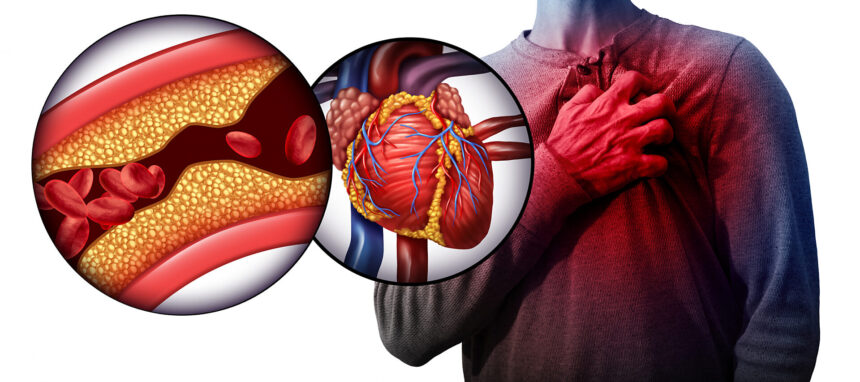Cholesterol is often misunderstood. Many people assume all cholesterol is harmful, but the truth is more nuanced. While high cholesterol levels can increase your risk of heart disease, not all cholesterol is bad. In fact, some cholesterol is essential for your body to function properly.
In this detailed article, we’ll break down the role of cholesterol in heart disease, explain the differences between LDL (bad cholesterol) and HDL (good cholesterol), and provide tips for keeping your levels in check.
What Is Cholesterol?
Cholesterol is a waxy, fat-like substance that your body needs to build cells and produce hormones. It is produced naturally by the liver, but it’s also found in certain foods. While cholesterol is essential, too much of the wrong kind can clog your arteries and lead to heart problems.
How Cholesterol Travels in the Body
Lipoproteins and Their Functions
Cholesterol doesn’t travel alone in the bloodstream. It binds to proteins to form lipoproteins, which are classified mainly into:
- Low-Density Lipoprotein (LDL): Known as bad cholesterol because it carries cholesterol to your arteries, where it may form plaque.
- High-Density Lipoprotein (HDL): Known as good cholesterol because it removes cholesterol from the bloodstream and transports it back to the liver.
LDL: The Bad Cholesterol
How LDL Causes Heart Disease
When LDL cholesterol levels are too high, it can lead to a condition called atherosclerosis, where plaque builds up in the arteries. This narrows the arteries and reduces blood flow to the heart and other organs. Over time, this can result in:
- Heart attacks
- Stroke
- Peripheral artery disease
Risk Factors for High LDL
- Diet high in saturated and trans fats
- Lack of physical activity
- Obesity
- Smoking
- Genetics
HDL: The Good Cholesterol
How HDL Protects Your Heart
HDL cholesterol acts as a scavenger, carrying LDL cholesterol away from the arteries and back to the liver. There, it is broken down and eliminated from the body. Higher levels of HDL are linked with a lower risk of heart disease.
Ways to Boost HDL
- Regular exercise
- Healthy fats (e.g., olive oil, avocados)
- Quitting smoking
- Moderate alcohol consumption (if applicable)
- Weight management
Triglycerides: Another Important Factor
Triglycerides are a type of fat found in your blood. When you eat more calories than you burn, your body stores the excess as triglycerides. High levels, especially when combined with low HDL or high LDL, raise your risk for cardiovascular diseases.
| Lipid Type | Function | Heart Health Impact |
|---|---|---|
| LDL | Delivers cholesterol to cells | Increases heart disease risk |
| HDL | Removes excess cholesterol | Reduces heart disease risk |
| Triglycerides | Stores unused calories | Raises risk when elevated |
Cholesterol Levels Chart
Below is a table showing desirable, borderline, and high cholesterol levels:
| Cholesterol Type | Optimal Level (mg/dL) |
|---|---|
| Total Cholesterol | Less than 200 |
| LDL | Less than 100 |
| HDL | 60 or higher (good) |
| Triglycerides | Less than 150 |
How to Check Your Cholesterol
Lipid Profile Test
To understand your cholesterol levels, your doctor will recommend a lipid profile test. It’s a blood test that measures:
- Total cholesterol
- LDL
- HDL
- Triglycerides
Regular screening is important, especially if you have other risk factors like diabetes, obesity, or a family history of heart disease.
Diet and Lifestyle Changes to Manage Cholesterol
Foods That Help Lower LDL
- Oats, barley, and fiber-rich foods
- Fatty fish (like salmon and tuna)
- Nuts (almonds, walnuts)
- Beans and legumes
Foods to Avoid
- Red meat
- Full-fat dairy products
- Fried and processed foods
- Sugary desserts
Medical Treatments for High Cholesterol
When lifestyle changes aren’t enough, medications may be prescribed:
Common Medications
- Statins: Reduce the amount of cholesterol the liver produces
- Bile-acid-binding resins: Help eliminate cholesterol
- Cholesterol absorption inhibitors: Limit cholesterol absorption from food
- PCSK9 inhibitors: Used in severe cases to lower LDL dramatically
Always consult with your doctor for a personalized treatment plan.
Prevention: Keeping Your Heart Healthy
- Eat a heart-healthy diet
- Exercise at least 30 minutes a day, 5 days a week
- Don’t smoke
- Limit alcohol intake
- Maintain a healthy weight
- Monitor your cholesterol levels regularly
Conclusion
Understanding the role of cholesterol in heart disease is crucial for prevention and early treatment. While LDL (bad cholesterol) contributes to plaque buildup and heart disease, HDL (good cholesterol) helps clear the arteries. By adopting a healthy lifestyle, monitoring your levels, and seeking medical advice when needed, you can protect your heart and live a longer, healthier life.
FAQs
1. What is the main difference between good and bad cholesterol?
Good cholesterol (HDL) removes excess cholesterol from the bloodstream, while bad cholesterol (LDL) deposits it in the arteries.
2. Can high cholesterol be reversed naturally?
Yes, in many cases, healthy eating, exercise, and lifestyle changes can significantly reduce cholesterol levels.
3. How often should cholesterol be checked?
Adults over 20 should get their cholesterol checked every 4–6 years, or more frequently if at risk.
4. Is all cholesterol bad for you?
No, your body needs some cholesterol to function. HDL is beneficial, while excess LDL is harmful.
5. Do children need to worry about cholesterol?
Children with obesity or a family history of heart disease should have their cholesterol checked under a doctor’s guidance.
6. Are plant-based diets good for lowering cholesterol?
Yes, plant-based diets are high in fiber and low in saturated fats, making them effective for lowering LDL cholesterol.
7. Can stress affect cholesterol levels?
Chronic stress can influence behaviors that lead to higher cholesterol, such as poor diet and lack of exercise.
8. Are cholesterol-lowering medications safe?
Most are safe when taken as prescribed, but they can have side effects. Always consult your doctor for the best options.









